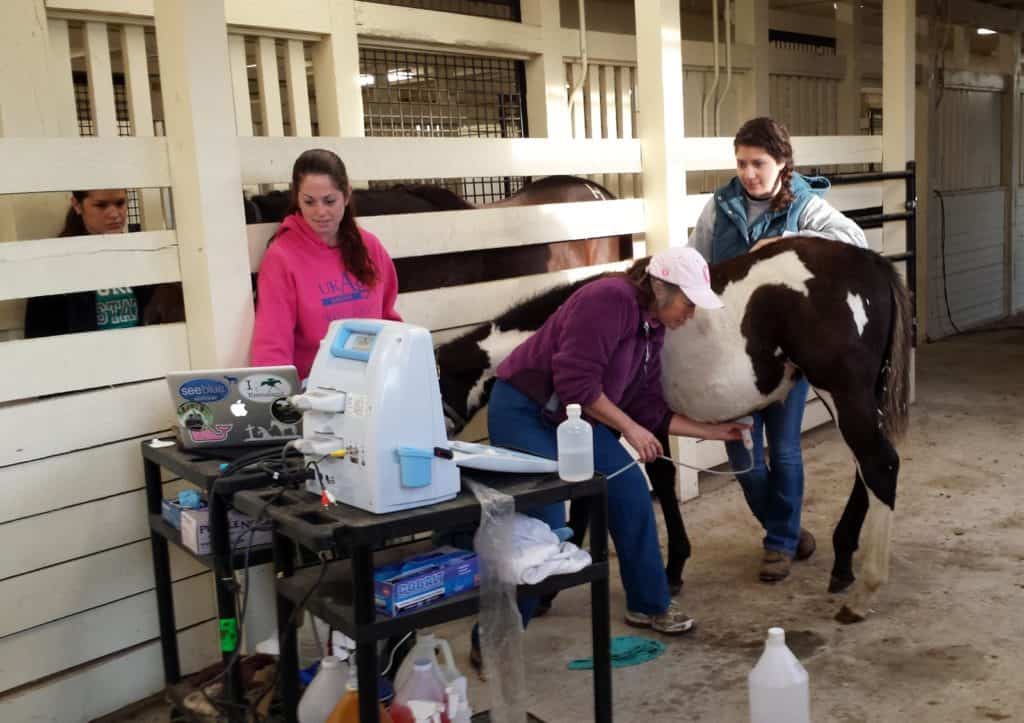
Mare Thyroid Condition Might be Linked to Foal Deaths
The rare condition–primary hypothyroidism–in mares could be behind a potentially deadly foal problem called CHDS.

The rare condition–primary hypothyroidism–in mares could be behind a potentially deadly foal problem called CHDS.

One vet reviews the options practitioners have for determining prognosis and predicting survival for sick foals.

Researchers confirmed that transabdominal ultrasonography can reliably identify worm burdens of more than 10 ascarids.

Smith’s research is focused on determining the dietary requirement for the amino acid threonine in growing horses.

Veterinarians should be familiar with what’s normal and what’s not normal on a foal’s blood sample test results.

Orphan foals require special care from the start, especially when it comes to their nutritional needs.

Researchers recently identified the NetF toxin in foals in Kentucky.
The University of Kentucky Veterinary Diagnostic Laboratory offers real-time polymerase chain reaction assay testing for Rhodococcus equi.

Diet, exercise, biomechanics, and genetics all play a role in disease development, researchers say.

Giving foals hyperimmune plasma did not prevent infection, but it did reduce the severity of R. equi pneumonia.

Many foals born with beating heart and pulse, but who fail to breathe, can be revived via CPR. Here’s what to remember.

Learn what GI diseases to watch for, how veterinarians detect them, and how to avoid them in the first place.

Though the overall prognosis isn’t great, some foals with incomplete ossification can race if managed properly.

Studies focused on ophthalmology, gastrointestinal disease, foal medications, pain management, and more.

Recaps of studies on colic outcomes, treatments for joint problems, respiratory surgery, and more.

Pyles is studying the effects of the maternal diet on the colonization of intestinal bacteria in the foal.
Stay on top of the most recent Horse Health news with
"*" indicates required fields